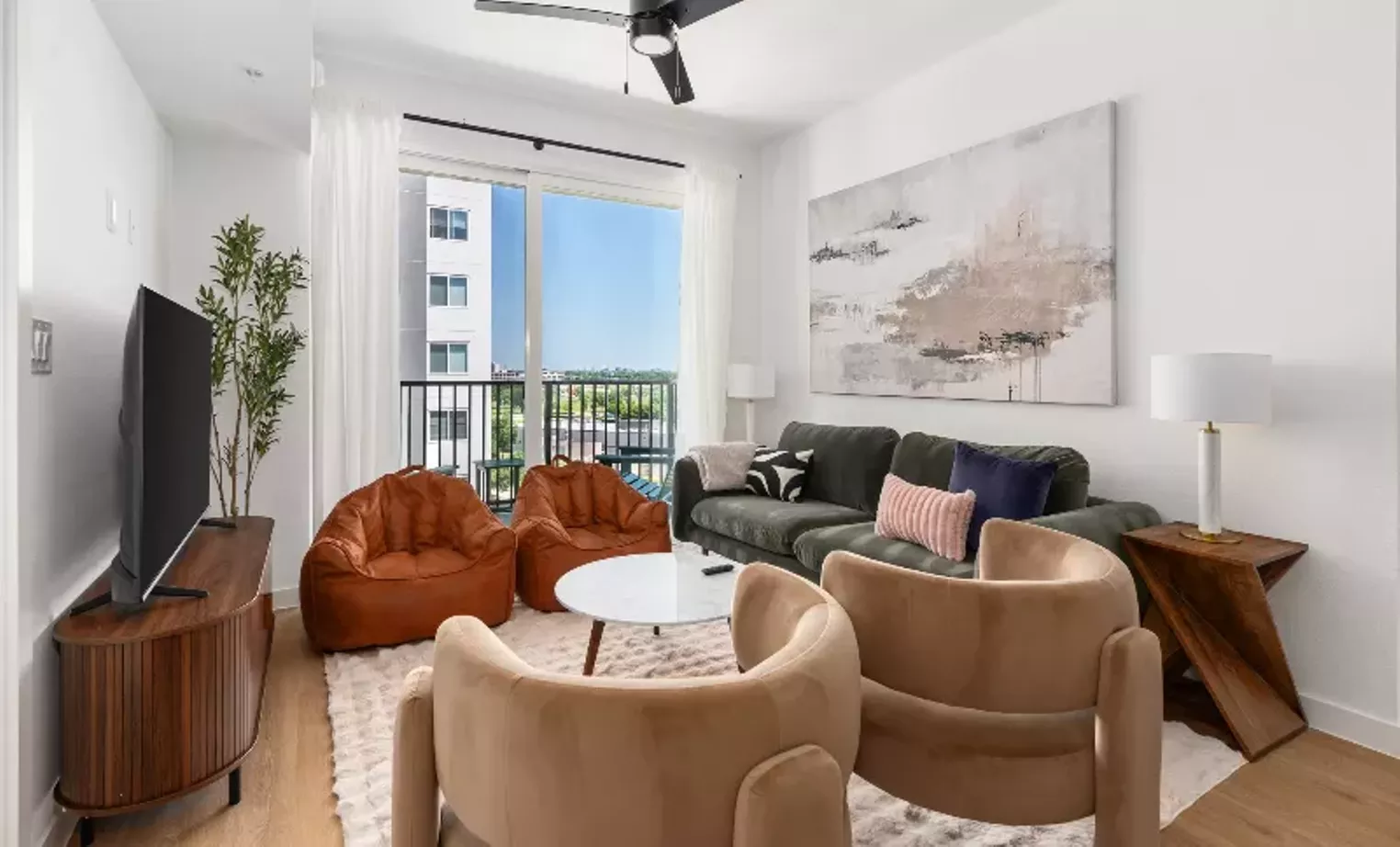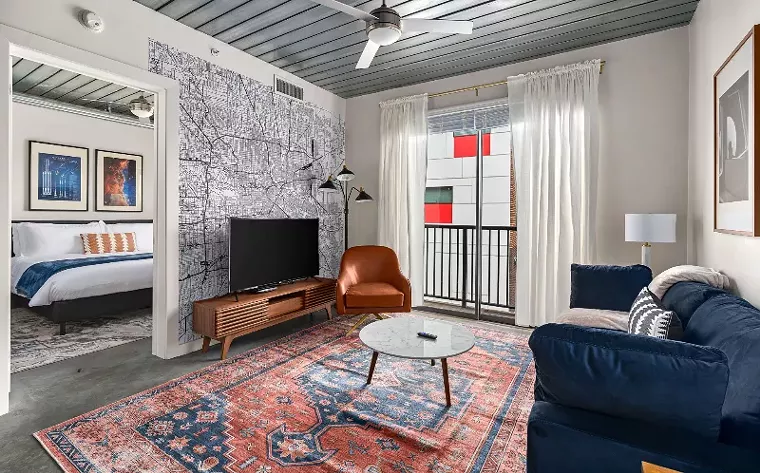Houstonians who had hoped for a swift and seamless process to eliminate rental party houses from their neighborhoods will have to wait a little longer, and even though an ordinance regulating short-term rentals was adopted in April, there’s no guarantee it will solve everyone’s problems.
Residents from all over the city, but particularly in Montrose, Midtown, The Heights, and Third Ward, have pleaded for over a year with the Houston City Council to regulate operators like Airbnb and VRBO that host guests for up to 30 days. Many of the complaints are nuisances — parking violations, trash on the lawn, and loud pool parties past midnight on weekdays — but extend to drug use, nudity, and suspected prostitution and trafficking.
When Houston’s first short-term rental ordinance was adopted about three months ago, officials included a provision that the properties must register with the city beginning August 1. This was to be the first tool in the toolbox for cracking down on problem units.
But, “due to unexpected technical challenges and to allow sufficient time for testing and feedback,” the “go-live” date was pushed to October 1, city officials announced this month. Despite the registration delay, enforcement is still set to begin January 1, 2026.
Administration and Regulatory Affairs Public Information Officer Billy Rudolph, whose department worked with the City Attorney’s Office to craft the regulations, said it was ambitious to try to get the registration program live in a three-month time frame.
“We wanted to give folks as much time as possible,” he said. “We’re working with multiple vendors and there’s a little bit of a challenge trying to put together the payment process, so we’re making sure that’s refined. We are engaged with stakeholders to refine some of the application questions to make sure we’re making that process as simple as possible.”
A registration database won’t stop people from having parties, Rudolph acknowledged, but it will provide Code Enforcement and Houston police officers with emergency contact information and create accountability for the owners and operators who don’t want to pay fines or get shut down.
Sebastien Long’s company Lodgeur leases more than 100 rental units in Houston. Long has offered feedback from the operator side throughout the process and shown a willingness to cooperate with city regulations, but says there are several problems with the registration form as it stands today.
“They’ve tried to do things in there that were agreed upon and removed from the ordinance,” Long said. “I don’t know if that’s because they’re trying to pull a fast one or if they just don’t know what they’re doing. It’s frustrating.”
Long joined forces with the Houston Apartment Association to submit some potential revisions. An email with some of the suggestions from Lodgeur’s general counsel is attached at the bottom of this story.
“We’ve tried to collaborate and help them make the form more efficient, but we’re also pushing back very strongly for the form to reflect what the ordinance is actually asking for,” Long said.
This apartment on Main Street is hosted by Lodgeur as a short-term rental.
Photo by Lodgeur
Long has hosted more than 10,000 guests at his apartment properties, including business travelers, professional athletes, and cancer patients and their families, since the company launched in 2019.
“We’re not party houses; we’re part of Houston’s hospitality and housing infrastructure,” he said at a council meeting in April. “We don’t want bad actors giving us a bad name. That’s why we support [the ordinance] in principle.”
The $275-per-unit registration fee is particularly challenging for multifamily rental operators; Long will end up paying close to $40,000 a year, and the fees won’t fund boosted enforcement. They’ll go toward a contract with Houston’s third-party vendor Granicus to maintain the registration database. The company’s “Host Compliance” software costs about $1.6 million, according to city documents.
“It doesn’t improve public safety; it’s just driven by a contract that they signed with a third party,” Long said of the registration fee.
Short-term rental operators also pay hotel occupancy taxes based on revenues, which are split between the state of Texas, Harris County, and the City of Houston for tourism purposes.
Under the new ordinance, short-term rental operators must pay the annual registration fee, list an emergency contact who must respond to complaints within an hour, and take a free training course on human and sex trafficking. The city can remove all short-term rentals from booking sites for a particular owner or operator if at least three of their registrations have already been revoked in a two-year period.
Violations are punishable by fines of up to $500. Each day any violation continues will be punishable as a separate violation.
Long said he has asked for some leeway on whether the application must be in the name of the owner versus the operator. Rudolph said the owner’s name has to be on the registration to confirm his or her knowledge that the property is being used as a short-term rental.
Rudolph said he’s received significant feedback from owners and operators but has had limited interaction with residents since the ordinance passed. He encouraged residents to follow updates on the website and be reminded that enforcement doesn’t begin until January.
“I think we’re going to see enforcement be more effective,” Rudolph said. “I don’t think it’s an across-the-board solution. We’re probably still going to run into issues that we can’t anticipate right now, and I think revisiting the ordinance to address any issues that come up is a possibility.”
Data presented earlier this year shows that Houston has about 10,500 short-term rentals.
Jason Ginsburg, a real estate attorney and founder of Houstonians Against Airbnb, said five lots in his Montrose neighborhood were purchased to use as short-term rentals but that hasn’t happened yet. He still wants good rules on the books to protect himself and other Houston residents and to support his clients who own rental property.
“I’m not sure what the delay is, but I can tell you it’s completely in character,” Ginsburg said of the registration deadline being pushed back. “This is a big issue and it’s been something of a third rail, so progress has always been slow. I know many of our council members mean well but for some of our city bureaucrats, I’m sure it’s one more thing they’d rather not work on.”
Several big Texas cities have used zoning as a tool to limit or ban short-term rentals in single-family neighborhoods; Houston doesn’t have that option. Such bans have prompted legal challenges across the country and that appears to be something Houston wants to avoid.
Ginsburg said when the ordinance was being drafted, he suggested requiring noise monitors in each unit. That didn’t make it into the final draft, but some operators, like Long, have voluntarily installed the devices in each of their units.
Houston residents who have struggled with nearby party houses view the regulations as a first draft that will be re-evaluated and tweaked once city officials see how and if it’s working, Ginsburg said, adding that he will continue to advocate for safe, family-friendly neighborhoods.
“If you step back and take a look at Houston, you see that HISD is constantly under siege, our mayor is ripping out bike lanes, and now there’s no urgent need to make sure kids can sleep at night next to these STR properties,” Ginsburg said. “Does anyone care whether families can live in this city? Maybe this city isn’t for families anymore. I can guarantee you there are a lot of people arriving at that conclusion.”
He said he and his neighbors recognize that the squeaky wheel gets the grease, and now that a regulatory framework is in place, they plan to be vigilant in ensuring operators are following the law.
“If there is a nuisance Airbnb on our block or if there are several, it’s not just going to be one report to 311,” he said. “It’s not just going to be one call to HPD. It’s going to be a dozen calls and a dozen reports every single time there’s a disturbance until the message gets through that we’re not going to tolerate parties in that kind of atmosphere when our children are trying to sleep and we’re just trying to live our lives.”

